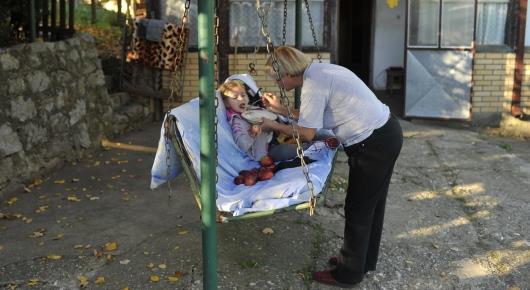Regional meeting aims to improve social protection for rural Western Balkans

Social protection plays a crucial role in accelerating progress in the fight against hunger, malnutrition and rural poverty, with the potential to transform the lives of rural women and men by improving their well-being and livelihoods.
Still, evidence shows that social protection is lacking for the majority of the food insecure and poor living in rural areas.
With this in mind, experts, researchers and practitioners have come together on 24–25 September for a regional meeting in Belgrade to discuss social protection in the Western Balkans. Their focus is on the spread and characteristics of poverty and social exclusion, social insurance and social assistance programmes, including access to pensions and other social benefits.
“The Balkan countries, particularly the former Yugoslav republics, have a strong legacy of a well-developed social protection infrastructure and practices,” said social protection specialists Marija Babovic and Danilo Vukovic. “However, transition, conflict and instability have weakened social protection and call for new, tailor-made solutions.”
The meeting is organized by FAO, in collaboration with the SeConS Development Initiative Group, an independent think tank of experts working to improve living conditions and boost socio-economic development in Southeast Europe. Participants include FAO experts, government officials, specialists, and academics from Albania, Bosnia and Herzegovina, Montenegro and Serbia. Also involved in the meeting are representatives of main development partners involved in social protection agendas, such as the European Union, the International Labour Organization, UNICEF, UN Women and the World Bank.
In the Western Balkans, a significant share of the population (from 36 to 62 percent, depending on the country) is concentrated in rural areas. Working with SeConS to explore social protection in these areas, FAO has found that the region is still dominated by subsistence farming. The organizations published a study this summer showing that rural areas are marked by higher levels of poverty and social exclusion than are urban areas and are not as well covered by social insurance schemes. The study also found that rural women are particularly vulnerable, due to their prevalence in informal labour.
“Looking at these countries, the various social insurance schemes – most notably pension schemes – that aim to achieve better coverage of rural population significantly lag behind the European Union,” according to the experts who contributed to the report. “The findings of the study and the regional meeting are important milestones towards adequate social insurance coverage for rural populations.”
In accordance with the recommendations of the Second International Conference on Nutrition (ICN2), FAO is working on a more nutrition-sensitive social protection scheme for the region that is expanded to better reach the poorest and most vulnerable in rural areas and is linked to agricultural and rural development programmes.
The meeting is in line with Agenda 2030, which commits countries to expand coverage of nationally appropriate social protection systems and measures for all to achieve substantial coverage of the poor and the vulnerable by 2030 and contributes to the Sustainable Development Goals 1 and 2.
24 September 2018, Belgrade, Serbia
